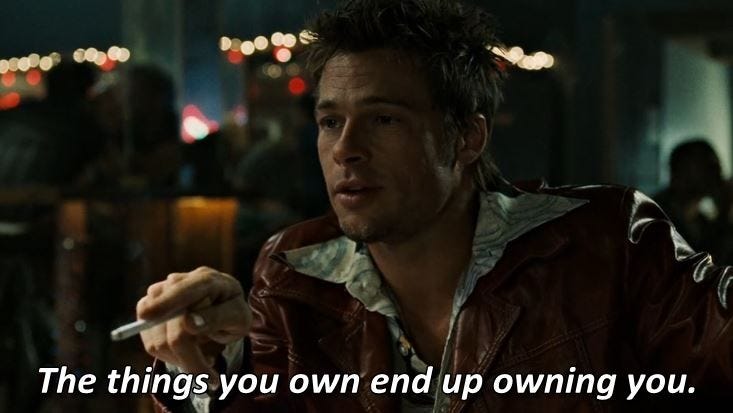Embracing Boredom: A Minimalist Approach to Digital Distraction
Navigating the Digital Age Mindfully to Cultivate Productivity and Growth
In the digital age, I think the biggest battle we face is the fight against boredom. And I get it, what’s the point of being bored? Why can’t I at least learn something instead of just doing nothing?
Sounds like a logical rebuttal. But coming from firsthand experience and not being unique amongst many others, I often use technology to distract myself, removing the want or even forgetting about how necessary it is to sit in silence, to go on a car ride with the music off, to walk in the grocery store without headphones in, to use Netflix to medicate myself from sifting through a problem I’m not looking to face.
I can almost certainly say that most people have dealt with this in one way, shape, or form.
There’s this ongoing movement of minimalism that has been trendy for some time now, and I’ve come to find it a really interesting way of navigating through life. And I’ll get right into how this relates to boredom.
Minimalism is a concept, a way of life, an architectural style, a form of acute materialism. Minimalism has changed my perspective on life by focusing on the things I truly need to be a functional human. Truly, you only need so many clothes, so why have more than you need? You only need one camera, why have 2? “You only need ____ so why have more” is something we should ask ourselves. And this frame of mind ties to the digital world we find ourselves consumed in.
How mindful are we when we use technology? Do we say before we open Instagram, “I’m going to use this app for 2 minutes and then carry on with my day,” or do we mindlessly scroll? Do we mindfully choose a show to watch based on a conversation we had or a recommendation that a friend has given us, or do we let the algorithm dictate what we take in?
Setting boundaries and taking a minimalist approach to technology is necessary for productivity. These algorithms will not get dumber; in fact, this is the dumbest they will ever be. Our viewing habits and digital consumption will end up leaving us mindlessly consuming.
And this is where boredom comes in…
Boredom and the lack of stimulation will give us time to reflect and think through problems, situations, advice you were given, an argument you had, and etc. If we are constantly consuming and constantly medicating ourselves with technology (as that is just one thing we do), then how do we grow? How do we understand our behaviors? How do we take action with precision?
It’s got to make it harder.
The one thing that had an incredible impact on my mindfulness was to set a 1-hour timer for my social media; after that, the apps are locked for the day. This includes all social media apps alongside my Safari browser. This has dramatically reduced my screen time and increased my ability to be mindful. Also, having that timer makes me think about what I’m taking in more.
There are methods to create boundaries with technology, and no system is perfect, but realizing this technology is going to get better and smarter at understanding how to keep us more and more gripped is something to be cautious about.
The best way to create habits isn’t doing the habits themselves; it’s creating systems that incentivize that behavior.
I hope you enjoyed this! I’m putting a heavy focus on the Twitter/X platform with my writing, and I would greatly appreciate a follow @colinleonard :)
Follow me here!
These newsletters will carry on as usual but also show up on the X platform. See you there!

